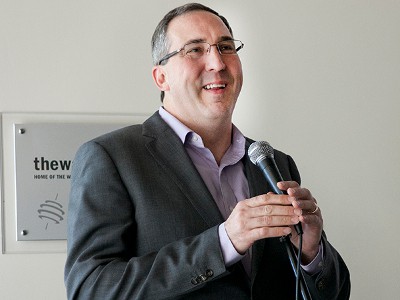
 The global tourism industry emits more CO2 than all but five countries in the world, an output that could be effectively mitigated for the cost of $11 US per trip, according to a new study by researchers at the University of Waterloo published in the Journal of Sustainable Tourism.
The global tourism industry emits more CO2 than all but five countries in the world, an output that could be effectively mitigated for the cost of $11 US per trip, according to a new study by researchers at the University of Waterloo published in the Journal of Sustainable Tourism.
The tourism industry, including transport, accommodation, and leisure activities, contributes nearly 5% of total human-generated CO2 emissions world-wide.
“A dangerously warming world is not in the best interest of global tourism. Many of peoples’ favorite tourism destinations and activities are at risk to climate change, from the ski industry to tropical beaches, from iconic species to cultural heritage. So investing in low-carbon tourism is really in the interests of both the tourism industry and travellers alike,” said Professor Daniel Scott, leader of the research team behind the study for the University of Waterloo. “We have to ask ourselves, are we willing to pay less than the price of an extra checked bag to ensure future generations can marvel at the sights that inspire us today?”
The study asserts that the tourism industry’s CO2 output could be cut in half if it imposed the $11 levy, a pledge that the World Travel & Tourism Council made for itself in adopting a target of a 50% reduction by 2035, or roughly the cost of a checked bag.
The WTTC estimates that in 2015, the tourism and travel industry accounts for 1 in 11 jobs world-wide and accounts for almost 10% of global GDP.
“The tourism sector has pledged to reduce its CO2 emissions 50 per cent by 2035. Our study demonstrates this is achievable, but will require determined action and significant investment – starting at just under US$1 billion annually 2020s,” said Professor Scott. “Divided equally among all domestic and international trips that’s about a US$11 cost per trip – basically the same price as many modest travel fees and taxes.”
The paper suggests that putting money into purchasing carbon emission offset credits, abatement of CO2 emissions in tourism subsectors and other emission reduction strategies will achieve the reduction target.
The research team behind the study was led by the University of Waterloo’s Scott, in partnership with researchers from Lund University in Sweden, the University of Canterbury in New Zealand, and NHTV Breda University of Applied Sciences in the Netherlands.
The study compares the effects of taking action with those of doing nothing.
“It is not peak oil that is a risk to future tourism development, but peak carbon,” said Scott. “Our analysis shows that the tourism sector can be compatible with a decarbonized global economy, if governments and business leaders show collective leadership to make it happen.”
According to the World Tourism Organization, tourism is the world’s fifth fastest growing industry, accounting for $1.53-trillion in revenue, globally. In Canada, the organization says the sector represents more of our GDP than agriculture, forestry and fisheries combined, with $88.5-billion in economic activity spread across 628,000 jobs.
But the organization warns that Canada is one of few countries in the world that did not post tourist arrival gains between 2002 and 2013, something it attributes, in part, to high taxes here.

Comment
One thought on “Study: Here’s the $11 solution to cleaning up the tourism business”
Leave a Reply
You must be logged in to post a comment.






 Share
Share Tweet
Tweet Share
Share




Hmm I worry about carbon offsets as there seems to have been so much cheating on this front. Can’t we make better engines, better fuel etc? I’d pay a further $11 per trip if it went into a fund to get that done.